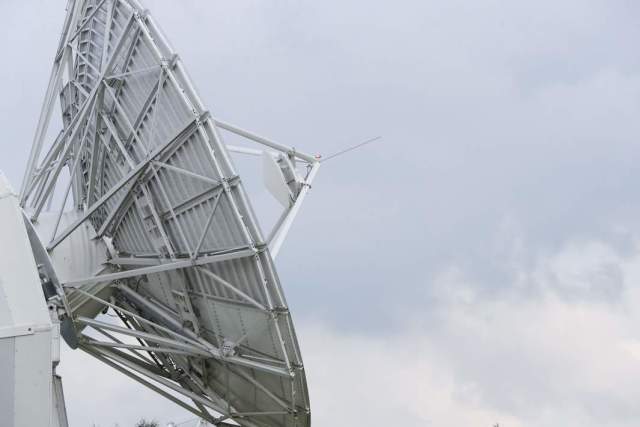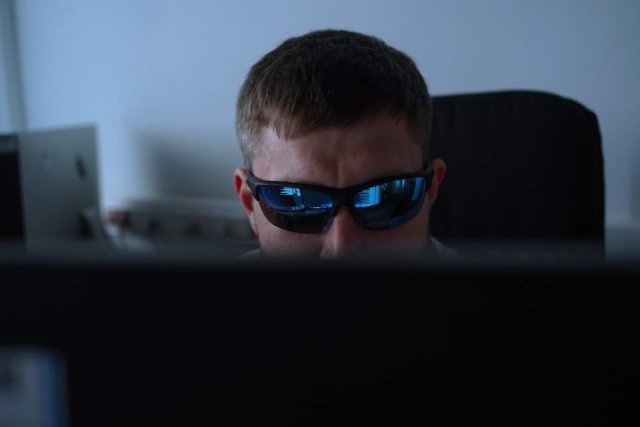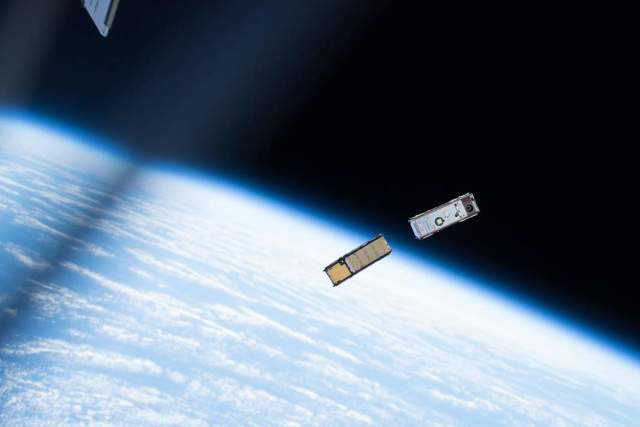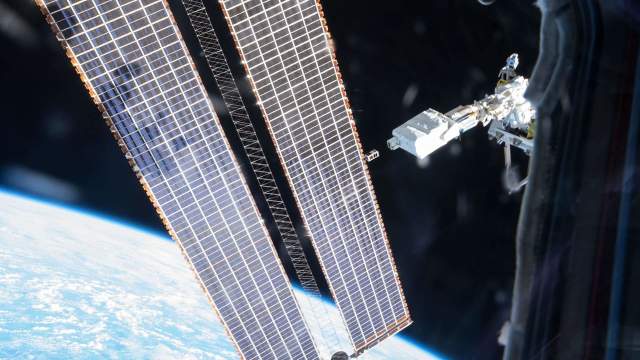Experts have stated that they do not have basic security systems
Orbital satellites may be completely defenseless against remote capture by hackers — experts have warned about this. According to their data, many of the spacecraft are deprived of even the most basic security systems. Read more about why satellites in orbit turned out to be vulnerable to cybercriminals and what this can lead to in the Izvestia article.
Targets for hacking
The research on the safety of satellites was conducted by Johannes Wilbold, a graduate student at the Ruhr University in Bochum (Germany). He presented the results of his work at the Black Hat security conference in Las Vegas (USA). Wilbold's conclusions turned out to be disappointing: after studying three types of orbiters, he found out that many of them are completely defenseless against remote capture by hackers. The reason is that satellites are sometimes deprived of even the most basic security systems.
— People think that satellites are reliably protected. These are expensive assets, and they must have encryption and authentication," Wilbold said.

Photo: IZVESTIA/Alexey Maishev
Image source: iz.ru
To check if this is the case, the scientist studied three different types of satellites and got depressing results. As it turned out, most spacecraft did not have authentication protocols: they transmitted signals without any encryption. Wilbold at the Black Hat conference showed how to take over the basic functions of satellite management and block the rightful owners.
At the same time, as it turned out, security issues were far from the first place for satellite developers. So, of the nine interviewed specialists who worked on 132 spacecraft, only two conducted penetration testing.
Stolen satellites
Despite the fact that space satellites are more complex than most conventional digital devices, they are also controlled by operating systems and software. Both orbiters and office computers have the same logic — which means that the nature of vulnerabilities can also be common.
— It is also important that many satellites work on outdated operating systems, and also have limited opportunities for software updates, — says Sergey Semenov, director of the IT company Init (specialization - modern business protection technologies), in an interview with Izvestia. — All these factors make spacecraft vulnerable to cyber attacks.

Photo: IZVESTIA/Anna Selina
Image source: iz.ru
According to Roman Sychev, head of the Angara Security Network Technology Department, the most obvious vulnerability of any spacecraft is communication: the signal is easiest to intercept. At the same time, such interception is not a problem for a specialist, since the signal goes over the radio frequency: it is enough to scan the frequency range and use special algorithms to isolate the necessary traffic from it. If it is possible to decode and decrypt it, then you can access all the information, as well as establish control over the satellite.
— Having taken control of the satellite, you can literally steal it, — explains Sergey Polunin, head of the IT infrastructure solutions protection group at Gazinformservice. — Another option is that the spacecraft can be forced to transmit false information: in this case, the owners may not immediately understand that there is a problem.
The specialist notes: satellites are very expensive equipment, so even a simple loss of control of such a device is a very serious problem, including financial. At the same time, the capture of satellites by hackers carries a huge set of very different risks. As Sergey Semenov explains, cybercriminals can simply steal or damage sensitive data — but there may be other scenarios.
For example, a hacker attack on a communications satellite can lead to a loss of communication with ships and aircraft on the ground, which is fraught with navigation failures and poses risks to the safety of navigation and air transportation. In turn, Johannes Wilbold at the Black Hat conference talked about the threats of transmitting malicious information or code to Earth, and in the worst case — the collision of satellites and the creation of debris in orbit that can disable other systems.

Photo: Global Look Press/dpa/Annette Riedl
Image source: iz.ru
The problem with the history
The problem described by the German researcher is not new: history knows examples when cybercriminals tried to attack satellites. Roman Sychev tells about an incident that occurred in 1999 with the American satellite ROSAT. He changed his orientation in flight and turned to the Sun, which turned into a breakdown of expensive equipment.
— As a result of the investigation, it turned out that the satellite control was hacked by a group of hackers, — says the interlocutor of Izvestia. — Another example is the British satellite SkyNet, which was captured and held hostage in order to get a ransom.
In turn, Sergey Semenov gives an example of a story that happened in 1998: then hackers hacked the NOAA-15 satellite, which was used for meteorological observations. The attackers introduced malicious software, which led to data transmission failures. At the same time, the expert notes that artificial intelligence (AI) and neural networks are rapidly developing today, which hackers can use for more complex and large-scale attacks on satellites. On the other hand, the same AI can be used to more effectively detect and prevent such attacks.
Protection mechanisms
Experts interviewed by Izvestia agree that in order to protect space satellites from hackers, it is necessary to implement a whole range of measures. According to Sergey Semenov, they include software updates, the use of modern encryption methods, the introduction of multi-level authentication systems and ensuring the physical security of spacecraft.

Photo: Global Look Press/ZUMAPRESS.com/NASA
Image source: iz.ru
As Roman Sychev explains, today the means of cryptographic protection of information with quantum encryption have been certified and are being tested. This encryption method makes it possible to practically nullify the attack on satellite communication channels. At the same time, it is important that modern approaches are applied at the design and development stage.
— A team of information security specialists should participate in the development of space technology from the very first stage, — the expert believes. — To understand: when developing modern software, cybersecurity specialists participate at every stage, starting from the design stage.
However, Sergey Polunin is more pessimistic: the specialist believes that for satellites, as well as for other technical means, their own recommendations on information security will be developed over time. But the problem is that cybersecurity in the space industry is not yet as "hot" a topic as, for example, the security of payment means. Therefore, it will not be easy to attract the attention of experts to the problem of the vulnerability of satellites to hacker attacks. And Johannes Wilbold has certain doubts about the fact that the satellite security systems will be promptly upgraded.
"From a technical point of view, it is possible. But the reality is that these systems are built on very narrow margins. Existing systems simply don't have the power to run encryption or authentication. This is impractical," he concluded during his speech.
Dmitry Bulgakov

